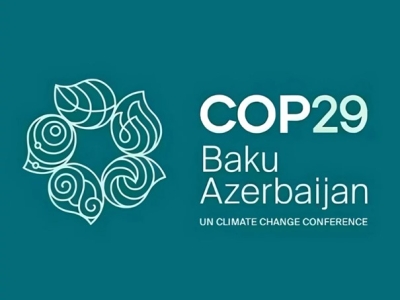The United Nations is organizing COP29, the Climate Change Conference
Climate change has been a serious threat to humanity for years, which is why it is crucial to organize various events addressing this issue, such as the COP29 Conference, held in Azerbaijan from November 11 to 22, 2024.
The International Organization for Standardization is also addressing the issue of climate change, launching the first Standards Pavilion at COP29 to highlight how international standards can provide concrete solutions to the problems caused by climate change.
Reliable, globally recognized standards offer a harmonized approach to climate change measures implemented in different countries and industries. By adopting international standards, governments and organizations worldwide mitigate the impacts of climate change and promote coherence in planning, action, and reporting on climate initiatives.
With a broad portfolio of standards, ISO provides practical tools to mitigate and adapt to the impacts of climate change, driving sustainable progress. Through internationally recognized standards, ISO supports sustainable energy solutions, fosters innovation, and accelerates progress in energy efficiency, helping to create a more resilient and equitable future for all.
The Institute for Standardization of Serbia has adopted numerous standards in this area, among which the most well-known standards published in Serbian are: SRPS EN ISO 14064-1:2019, Greenhouse gases - Part 1: Specification with guidance at the organization level for quantification and reporting of greenhouse gas emissions and removals; SRPS EN ISO 14067:2019, Greenhouse gases - Carbon footprint of products - Requirements and guidelines for quantification; SRPS ISO 14030-1:2021, Environmental performance evaluation — Green debt instruments — Part 1: Process for green bonds; SRPS ISO 14030-2:2021, Environmental performance evaluation — Green debt instruments — Part 2: Process for green loans; SRPS ISO 14030-3:2023, Environmental performance evaluation — Green debt instruments — Part 3: Taxonomy; SRPS ISO 14030-4:2021, Environmental performance evaluation — Green debt instruments — Part 4: Verification programme requirements; SRPS EN ISO 14090:2019, Adaptation to climate change - Principles, requirements and guidelines.
Soon, the standard dnaSRPS ISO 14068-1:2024, Climate change management – Transition to net-zero emissions – Part 1: Carbon neutrality, will be published in Serbian. Additionally, ISS is currently working on the translation and adoption of the IWA 48, Framework for implementing environmental, social and governance (ESG) principles, which supports global efforts towards sustainable development. This document provides a high-level framework and establishes a set of principles to guide the implementation and embedding of environmental, social, and governance (ESG) principles into organizational culture to support ESG performance management and facilitate measurement and reporting within existing frameworks, enabling consistency, comparability, and reliability of ESG reporting and practices at a global level.
This document provides guidance for identifying high-level principles and considerations that encompass all elements of ESG, ensuring integrated solutions with measurable key performance indicators (KPIs) to support the assessment of maturity levels within an organization. It is relevant to a broad spectrum of organizations of all types and sizes worldwide, including SMEs and organizations in low- and middle-income countries. It is complementary and interoperable with existing voluntary and regulatory reporting frameworks to facilitate global harmonization and alignment with ESG principles and approaches, and it is not itself a reporting framework.
With climate change posing major global challenges, events like COP29 and the involvement of the International Organization for Standardization are essential. Standards can play a pivotal role in solving these pressing issues.

